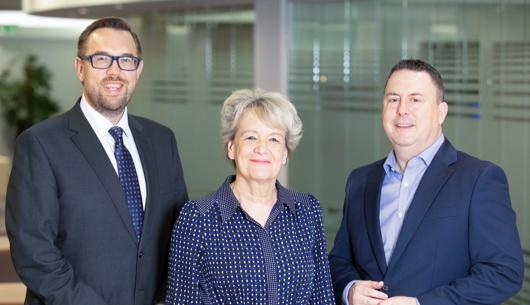Mental Health Awareness Week (12 – 18 May 2025) serves as a key reminder of why it’s important to address mental wellbeing in all aspects of life, including the workplace.
This year’s event, which features the theme of 'community', presents an opportunity for businesses to evaluate and enhance their approach to supporting employee mental health.
In today's fast-paced professional environment, particularly in demanding sectors like legal services, supporting mental wellbeing isn't merely a box-ticking exercise, it's fundamental to creating a thriving workplace.
The statistics speak volumes. According to the Health and Safety Executive, work-related stress, depression and anxiety account for about 16.4 million working days lost in the UK in 2023/24.
When businesses prioritise mental health support, they demonstrate a commitment to their people as whole individuals, not just as professional assets. This people-first approach improves employee wellbeing and ultimately contributes to a more positive organisational culture.
Five practical steps for supporting mental wellbeing in your organisation
While there is always more to be done, we’re proud to have strategies and policies in place that help us support our employees effectively. Drawing on this experience at Browne Jacobson, here are five ways businesses can better support the mental health and wellbeing of their people.
1. Create a comprehensive mental health framework with clear pathways
Develop a structured approach to mental health support that's integrated into your wider business strategy. This should include clear policies outlining available support, defined pathways for accessing help, and regular review processes. At Browne Jacobson, we've established mental health pathways through private medical care and a network of mental health first aiders who provide crucial on-the-ground support for colleagues experiencing difficulties.
These trained individuals can recognise early signs of mental health challenges, engage in supportive conversations, and guide colleagues toward appropriate professional help. A robust framework sends a powerful message that mental health is a genuine priority, rather than an afterthought.
2. Provide multiple access points to support
People's preferences for seeking help vary significantly, making it essential to offer diverse support channels. This could include confidential 24/7 helplines, access to qualified counselling services and information hubs with digital wellbeing resources.
Having support available around the clock is key, as we recognise that mental health challenges don’t stick to office hours. By creating multiple touch points to support, you help ensure that assistance is accessible, whatever an individual’s communication preferences or personal circumstances may be.
3. Create an open space for conversations
Foster a workplace culture where employees feel comfortable discussing challenging topics in a supportive setting. At Browne Jacobson, our employee-led 'courageous conversations' sessions reduce stigma around mental health conditions, share lived experiences and coping strategies, and address topics that impact mental wellbeing, from menopause to stress management.
These sessions build empathy and understanding across teams and work best when facilitated sensitively, with clear ground rules established for psychological safety. By normalising conversations about mental health, businesses can significantly reduce the stigma that often prevents people from seeking help.
4. Establish supportive communities and wellbeing initiatives
Creating communities and networks around specific wellbeing challenges provides valuable peer support. Consider developing health-related support networks like our menopause community with trained champions, and implementing wellbeing activities such as exercise classes or group nature walks to promote physical and mental health.
5. Implement flexible working practices and training
Despite many businesses recently returning to a full five days in the office, flexibility remains a cornerstone of effective workplace mental health support. This could include adaptable working hours, remote working options, or adjusted duties during difficult periods. Just as vital is equipping managers with mental health awareness and skills, as they’re often the first point of contact for employees who may be struggling.
Our firm has trained colleagues to deliver REACTMH® training as part of our open access learning offering. REACTMH® follows the framework: Recognise, Engage, Actively listen, Check risk, and Talk about specific actions – to support mental health in the workplace. Developed by March on Stress, the tool helps colleagues recognise behavioural changes that may indicate distress, hold supportive conversations, understand reasonable adjustments, and manage performance with compassion. We also offer TRiM (Trauma Risk Management) for trauma-focused peer support, acknowledging that both work-related and personal traumas can significantly impact mental health.
Measuring success and moving forward
Measuring the effectiveness of mental health initiatives is just as important as implementing them in the first place. Monitoring utilisation rates of support services and collecting employee feedback through wellbeing surveys are valuable ways to understand whether people feel supported and whether the initiatives are reaching those who need them most.
As we mark Mental Health Awareness Week, we’re reminded that supporting mental wellbeing is an ongoing commitment. The legal profession, with its unique pressures and demands, faces both a challenge and an opportunity to lead the way in fostering health and wellbeing in the workplace.
By encouraging open conversations and offering meaningful support, we help create environments where everyone can bring their best selves to work every day.
Contact

Shelley Sutton
Chief People Officer
shelley.sutton@brownejacobson.com
+44 (0)330 045 2748


































